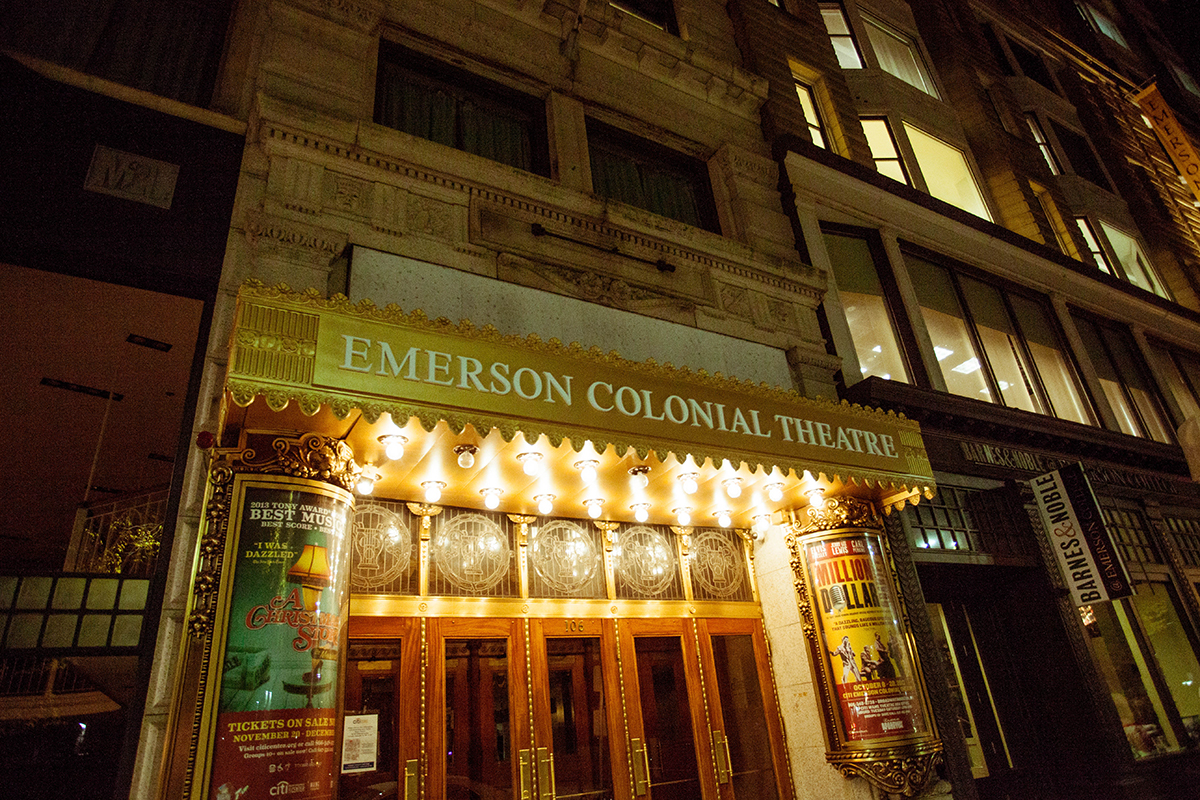Emerson Won’t Convert Historic Colonial Theatre Into Dining Hall

Photo by Alex Lau
Emerson College has scrapped its controversial plans to convert the historic Colonial Theatre into a dining hall for its students.
President Lee Pelton sent a letter to the Emerson community Thursday announcing the school would instead renovate three nearby buildings on Boylston Street and Boylston Place for its new student dining center.
“I am happy to confirm that we will keep it open as a commercial theater,” Pelton told the Globe. “We’re going to work as hard as we can to find a solution that meets both the fiduciary requirements of the college as well as continuing to provide quality arts programming.”
Emerson’s board of trustees unanimously voted to renovate 122-124 Boylston Street and 19 Boylston Place to create a dining hall and social spaces. Designed by Elkus Manfredi, the buildings are expected to open for the start of the fall 2017 semester, along with the new, 18-story residence hall at 2 Boylston Place. The 18,000-square-foot facility will seat 500 students.
Emerson previously planned to convert the 115-year-old Colonial, whose landmark status has long been pending with the Boston Landmarks Commission, into a student activity center, with a cafeteria in an adjacent building and dining tables situated in the orchestra section. Broadway legend Stephen Sondheim called it a “crime.”
“I’ve had shows which tried out in the Colonial, and it’s not only beautiful but acoustically first-rate, two qualities which are rare in tandem, even on Broadway,’’ Sondheim told Boston in October. “For those of us involved in musical theater, it’s a treasure and to tear it down would be not only a loss, but something of a crime.”
The Colonial, which Emerson purchased in 2006 and seats 1,700, closed its doors indefinitely last year. Pelton remained mum on which arts organizations have expressed interest in occupying the space.
“I cannot predict what the specific program will be nor the specific organization or companies or groups that will occupy that space,” he told the Globe. “One thing is certain: It will remain a theater and venue for the performing arts. That’s the bottom line.”


